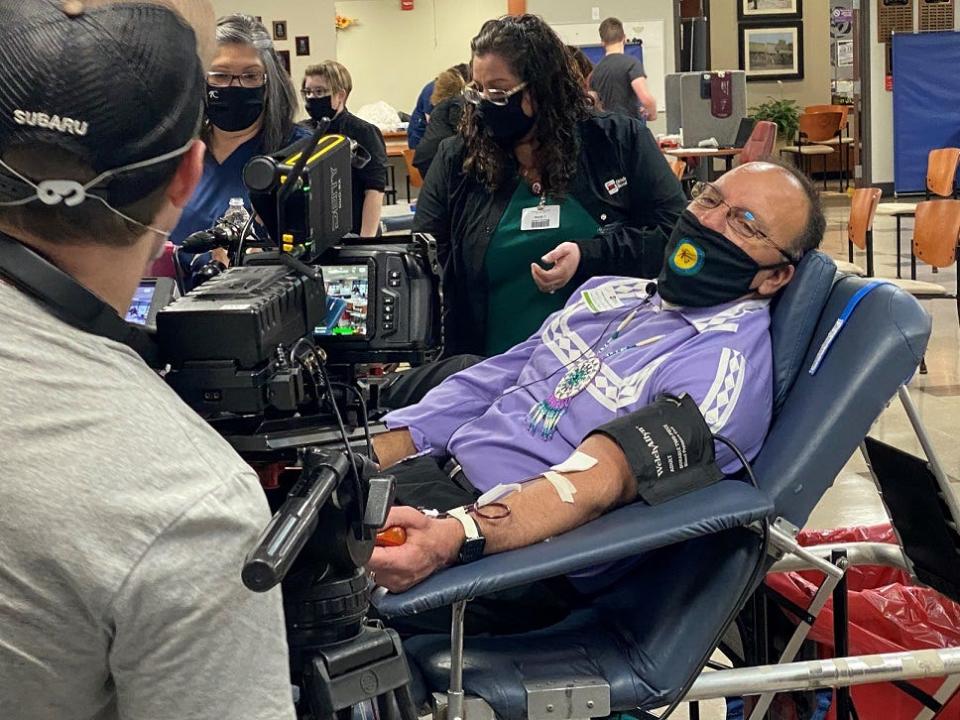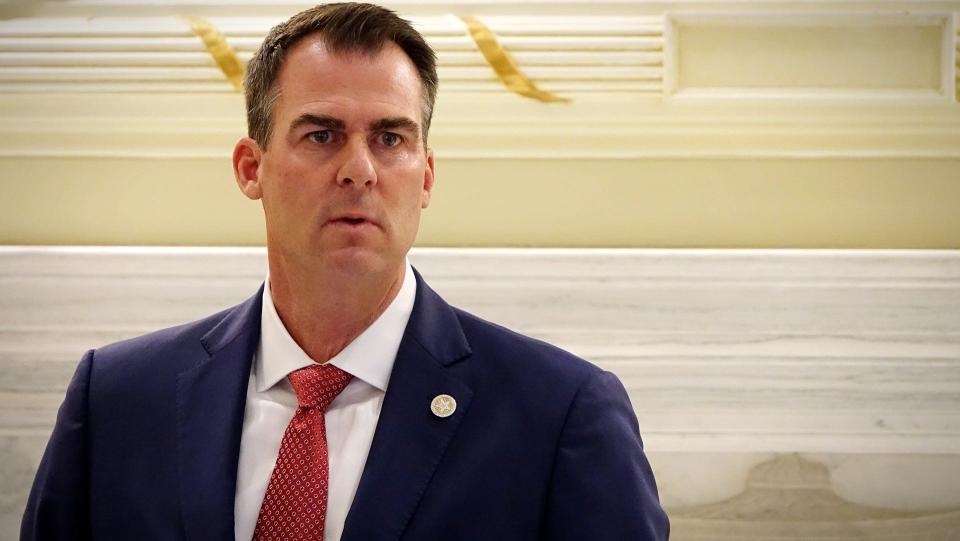Cherokee and Choctaw leadership move to regulate hunting, fishing after compact dispute
The Cherokee and Choctaw nations will offer new hunting rights to their members as a compact between the state of Oklahoma and the tribes is set to expire at the end of this month.
The end of the agreement also is expected to cut revenue for the Oklahoma Department of Wildlife Conservation.
After an agreement to renew the hunting and fishing compacts between the two sides could not be reached, Choctaw Chief Gary Batton and Cherokee Principal Chief Chuck Hoskin Jr. say their respective nations plan to open up hunting on tribal property to tribal members, with the main accreditation being a tribal membership card.

Each tribe will begin enforcing its own fish and game code on tribal land starting on Jan. 1, allowing members to hunt on public and private land while still following rules on trespassing. Those with tribal membership still will be required to have an Oklahoma hunting or fishing license to participate in those activities outside tribal borders.
More: Oklahoma Gov. Stitt won't renew hunting, fishing compacts with Cherokee, Choctaw tribes
The state will be effectively blocked from regulating game on tribal land, as regulations will conform to Choctaw, Cherokee and federal laws, the tribes say.
"If you receive a ticket from an Oklahoma game warden while hunting within the Choctaw Nation boundaries, e-mail the Choctaw Nation Legal Department," reads a segment of a frequently asked questions page about new Choctaw wildlife regulations.
More: Fact check: How many people live in Oklahoma area covered by McGirt ruling?
For the Oklahoma Department of Wildlife Conservation, the direct affect will be 200,000 less license sales each year and a degree of uncertainty for what the change may mean moving forward.

"It's hard to really, clearly identify what the impact is going to be," said Nels Rodefeld, the department's chief of communication and education.
The Wildlife Department does not receive tax revenue and is mostly funded by hunting and fishing license sales, along with federal grants. In 2020, the department saw $22 million from license sales and another $29 million from grants.
The federal grant programs are calculated each year based on license sales, as well as state population and land size, said Micah Holmes, a spokesperson for the agency. When license sales drop, it affects the state’s ability to secure as much federal money, he said.
The Cherokee and Chickasaw nations estimated the hunting and fishing compacts netted the state at least $38 million in funding.
"We're deferring to the governor's office on behalf of the state to negotiate with the tribes. We hope that those discussions will continue in the next year," Rodefeld said. "Even though those compacts expire on the 31st there's always an opportunity for ongoing discussions about what's best for the state, tribes and Oklahoma fish and wildlife."
The hunting and fishing compacts were originally negotiated in 2015 and 2016 and then renewed in 2020. In the agreement between the two nations and then-Gov. Mary Fallin, the tribes agreed to purchase a combined 200,000 hunting and fishing licenses each year at $2 a piece, and then hand the cards over to tribal members.
But a proposal this year from Gov. Kevin Stitt would have renewed the agreement and raised the price of each license from $2 to $42. Tribal leaders said their only option was to walk away and oversee wildlife management separate from the state.
More: Supreme Court may decide soon whether to reconsider McGirt
“I am not sure why the State has changed its view of this mutually beneficial compact,” Batton wrote in a letter to Stitt. “This is disheartening to hear because I truly thought that you wanted what was best for Oklahoma."

“Unfortunately, this is consistent with what we’ve seen from the governor since the Supreme Court’s McGirt decision," Hoskins said. "Whenever there is an opportunity to cooperate with tribes — whether on keeping criminals off the streets or on hunting and fishing rights — the governor has instead sought to undermine collaboration and claim McGirt created chaos."
This article originally appeared on Oklahoman: Oklahoma tribes move to regulate hunting, fishing amid compact dispute

